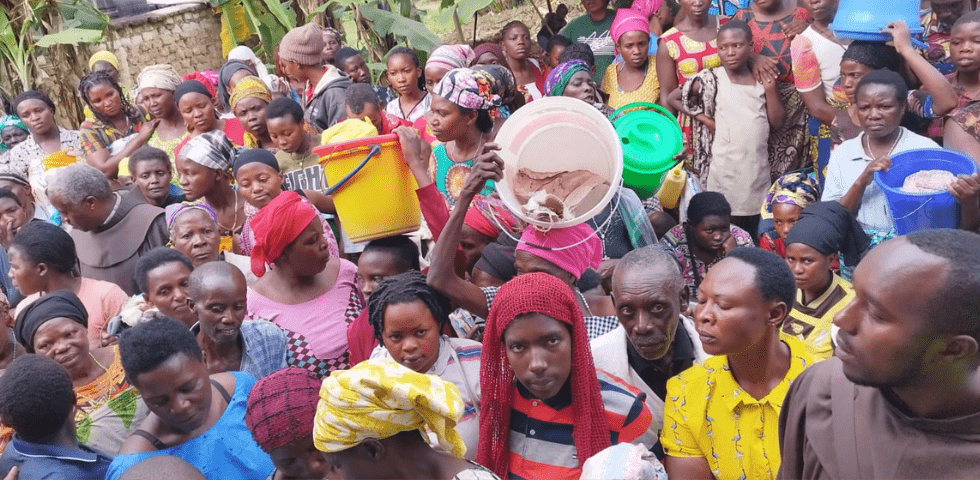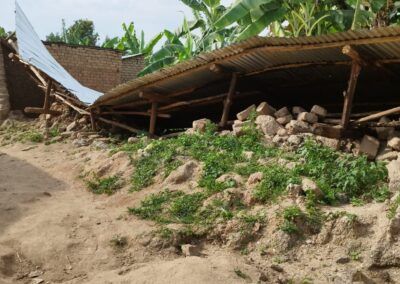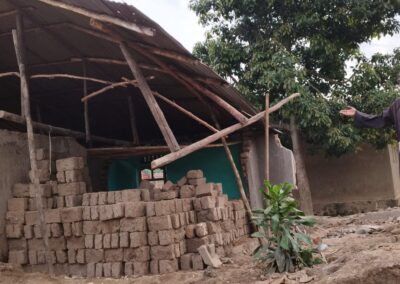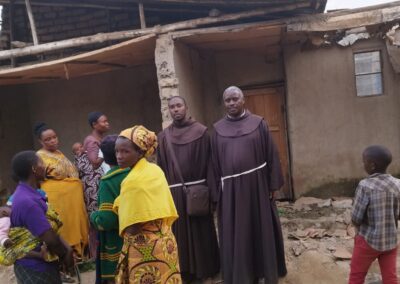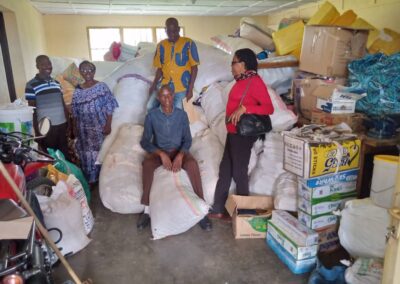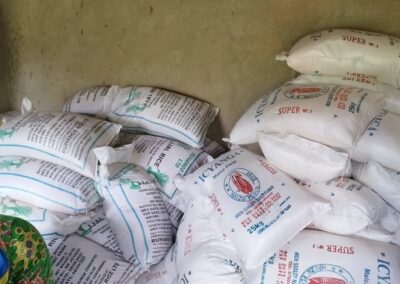In the month of May this year, torrential rains flooded western and northern provinces of Rwanda triggering flash flooding and landslides which left at least 130 people dead, 18 000 people displaced, 6000 houses damaged and others facilities such as roads, bridges schools, health care centers demolished.
Crops and livestock were also wiped out and swept away. Conscious of their call to be “the voice of the voiceless”, friars of Karama community in Rwanda through Fr Florent Rugigana, OFM, the parish priest of Saint Francis of Assisi parish, Karama requested for help from MZF and it was granted. While a team of friars and Karama parishioners distributed beans, rice, maize flour, salt, sugar, cooking oil, soap and clothes to the flood victims, Fr Jean Eric Mutabazi, OFM, the provincial animator for JPIC and a member of Karama community was going through the crowd discussing with them and instructing them on climate change as the main cause of such disasters; he also instructed them on the common responsibility to take care of the environment, our “common home”, (icumbi rusange in Kinyarwanda).
Indeed, on Tuesday 11th June, three tones of beans, two tones of rice, one tone of porridge flour, five hundred kgs of sugar, one thousand litres of cooking oil, one hundred kgs of salt, soap and some clothes were distributed to five hundred families who were most affected by the floods in Gisenyi parish. These people heartily thanked the friars while they repeatedly requested them to come back: “muzagaruke!”
What could be the cause of such disasters? Surely, not evil spirits!
What could be the cause of such disasters? This was the first question which Fr Jean Eric Mutabazi, OFM was asking the flood victims and beneficiaries of the above-mentioned help. The question was meant to help them “give birth to the truth.” The answers to it were so diverse and somehow interesting. Most of the answers centered around superstitions such as witch craft, bad omen, evil spirits, and so on. Some went as far as to say that it was a curse of God brough unto them by evil acts of some of them. The common feeling of the people was: “God is angry with us”. This revealed how much such a people needed to be catechized about environmental issues.
Actually, according to the United Nations Development Programme (UNDP), the real reason behind these floods is that Rwanda, the small, mountainous, landlocked African nation — often called the « land of a thousand hills » — is one of the most densely-populated countries in the region, and so more and more usable land is being eroded and degraded to service a growing agricultural-based economy that employs 65% of the population. As a result, its inherent vulnerability to climate shocks is increasing.
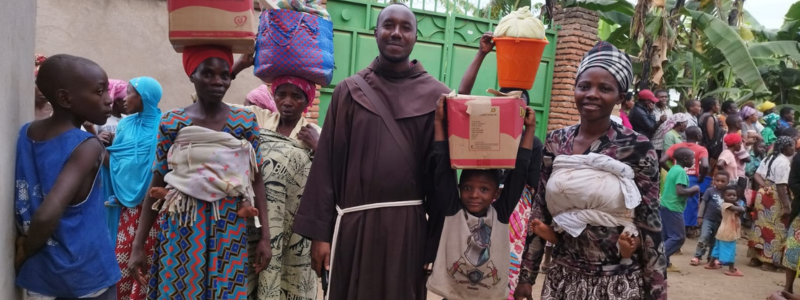
How can we mitigate future dangers?
his was the following question. Again, most people answered by saying that they need to turn to God got mercy. Some suggested that they would go to ask traditional diviners about it. This was an opportunity to tell teach the people about what should be the right attitude and actions to take in order to reduce the imminent danger of future crises.
In fact, In 2021, Rwandan president Paul Kagame promised to respond to worsening extreme weather later that year.
« In Rwanda, the changing climate is already making itself felt in unusually heavy rainfall and flooding, » Kagame said. A such, reforestation and forest conservation are important means to combat the rapid soil erosion and landslides that follow heavy rain and destroy crops. Otherwise, the loss of harvest due to heavy rains means communities could « experience a famine ».
Flooding and landslides not only destroy the built environment and biodiversity but also badly erode the soil that sustains crops. Nearly 600 million tons of soil is lost annually in Rwanda as a result of torrential rain, with sloping croplands losing the most. As such, while those who have been affected need urgent help to rebuild their lives, there is need of long term solution to save the country and mother earth in general.

